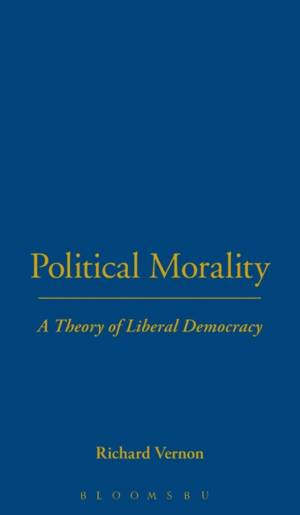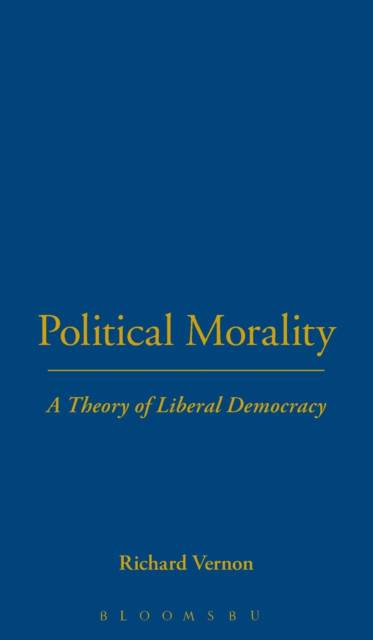
- Afhalen na 1 uur in een winkel met voorraad
- Gratis thuislevering in België vanaf € 30
- Ruim aanbod met 7 miljoen producten
- Afhalen na 1 uur in een winkel met voorraad
- Gratis thuislevering in België vanaf € 30
- Ruim aanbod met 7 miljoen producten
Omschrijving
Although liberal democratic polities have an important place in contemporary politics, their justification is contentious. Liberalism and democracy are commonly thought to be inconsistent, or at least in tension with one another; and the reality of liberal democracy is perceived as falling far short of the ideal. In Political Morality, Richard Vernon sets out to show that liberal democracy can make sense as a single political conception, rather than a trade-off between two different values. He also argues that in conceiving of liberal democracy as proposed, other problems inherent in liberalism and in democracy are eased; liberal democracy is not exposed to the same objections as liberalism and it can avoid some of the paradoxes that are said to plague democratic theory. The book also points to some of the ways in which polities currently termed 'liberal democracies' fall clearly short of the values that might legitimize them.
Specificaties
Betrokkenen
- Auteur(s):
- Uitgeverij:
Inhoud
- Aantal bladzijden:
- 224
- Taal:
- Engels
- Reeks:
Eigenschappen
- Productcode (EAN):
- 9780826450678
- Verschijningsdatum:
- 2/08/2001
- Uitvoering:
- Hardcover
- Formaat:
- Genaaid
- Afmetingen:
- 138 mm x 220 mm
- Gewicht:
- 349 g

Alleen bij Standaard Boekhandel
Beoordelingen
We publiceren alleen reviews die voldoen aan de voorwaarden voor reviews. Bekijk onze voorwaarden voor reviews.







